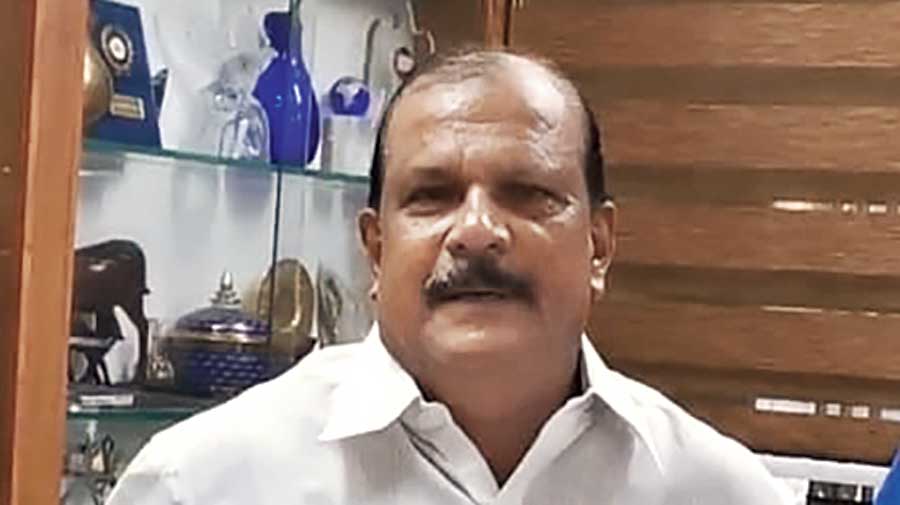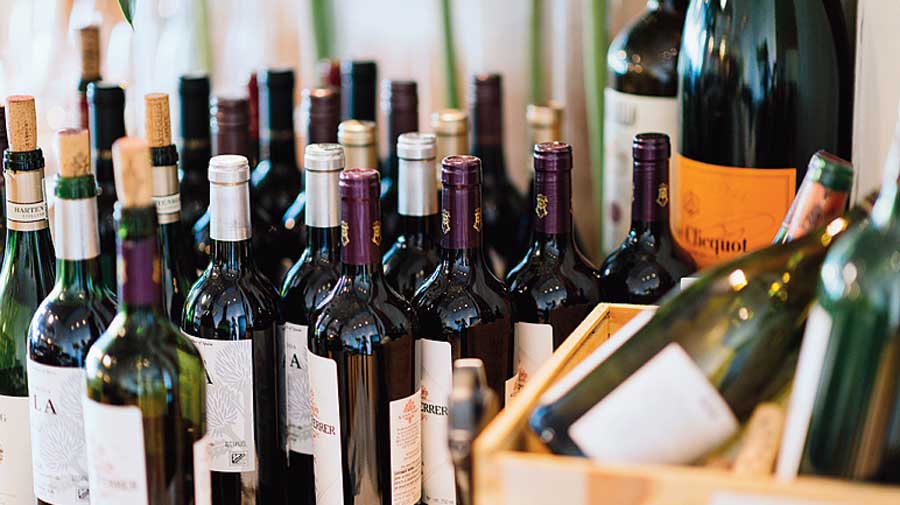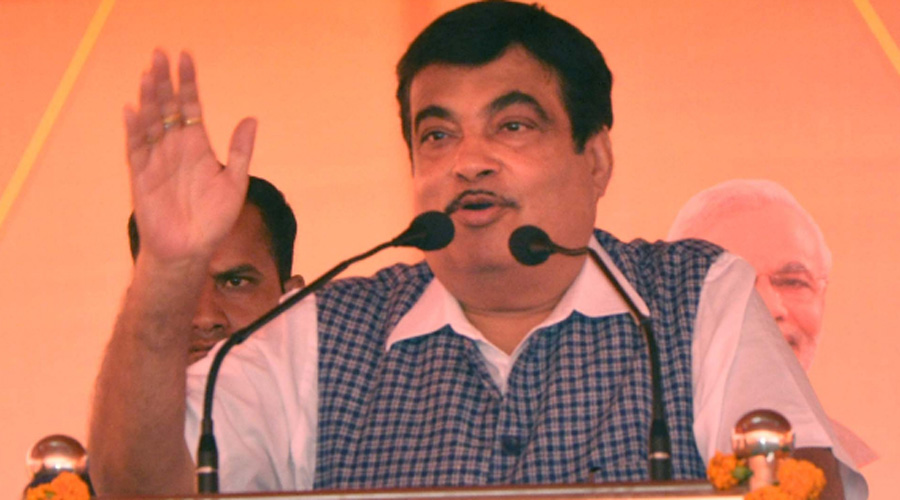Bold voice
Nitin Gadkari is known to be the rare bold minister in the Narendra Modi-led government. Recently, however, he appeared to have gone a little too far. Speaking at the inauguration of a private Covid-19 care centre in his constituency, Nagpur, Gadkari sought to ring the alarm bells. “The [Covid] situation is very serious and no one knows how long it will last... What will happen in the next 15 days to one month it’s difficult to tell,” he said. He stressed on the need for long-term arrangements to battle the pandemic.
In February itself, the Bharatiya Janata Party had credited the prime minister for having defeated the coronavirus, and here Gadkari was conjuring a grim picture. Whispers in party corridors have it that Gadkari should have reposed faith in the leadership of the prime minister and expressed confidence that the coronavirus will once again be defeated. It is no secret within the party that Gadkari had nursed prime-ministerial ambitions in the run-up to the 2019 Lok Sabha polls. People close to him had hoped he would be more acceptable to allies than Modi if the BJP failed to get a majority on its own. Party leaders, however, are wondering why Gadkari was resorting to such digressions now when all such hopes stand shattered.

PC George Facebook
Changed colours
The recent state polls in Kerala seem to have taught the rabble-rouser, PC George, and his little-known political party, Kerala Janapaksham (Secular), that he would not find a place in either the Left Democratic Front or the Congress-led United Democratic Front. The leader, notorious for his sharp tongue and fast-changing political opinions, is a new advocate of the ‘Hindu rashtra’. Strange as it might sound, the Christian leader who is seeking re-election to the assembly has openly called for India to be made a ‘Hindu rashtra’ and declared that it was demonetization that derailed a plan by certain groups to make India an Islamic republic by 2030. For the record, it is the same George who held a train siege protest in Kochi against demonetization. Changing fortunes bring changing priorities, it seems.
Under lock and key
As Covid-19 went on a rampage in Bihar and infections spiralled, the people of the state wondered why the government was not taking tough measures to tame those who were running amok without masks, social distancing or proper sanitization. It seemed as if nobody in the hallowed posts of power was bothered about controlling the situation, even though several among the leaders were contracting the deadly virus. But one thing surprised everybody. All the prominent political parties — ruling or Opposition — shut down their state headquarters. The Opposition, the Rashtriya Janata Dal, was the first one to do so. The Janata Dal (United), the party led by the chief minister, Nitish Kumar, and its partner, the BJP, swiftly followed by locking their gates to visitors and party workers.
The headquarters of the three parties are on the same road in Patna. A snacks vendor whose income depends on visitors to these offices was sitting idle. “These politicians are united when it comes to saving their own lives. They are not worried about what I will earn or how I will eat.” The Congress followed suit a few days later, although prior to the closure, senior leaders were boasting that “we did not close our offices even during the Spanish Flu pandemic that came 100 years ago.”
Turn right
Not many biography releases turn heads the way Dipok Kumar Barthakur: Right Turn in Assam did this week in Guwahati. It not only sheds light on the life and times of the Guwahati-based social activist and incumbent vice-chairman of the State Innovation & Transformation Aayog — the state version of Niti Aayog — but also reveals the quiet growth of the Rashtriya Swayamsevak Sangh in Assam through its development initiatives. Although the BJP won the state elections for the first time in 2016, the seeds were sown as far back in the Sixties by people like Barthakur, who is in his eighties now. The presence of the newly-appointed RSS general secretary, Dattatreya Hosabale, the chief minister, Sarbananda Sonowal, and the North-East Democratic Alliance convenor, Himanta Biswa Sarma — along with a video message by the BJP national president, JP Nadda, paying glowing tributes — was testimony to the importance of Barthakur. He has reportedly been associated with the RSS since the early Sixties. Besides being a successful businessman, Barthakur is credited with setting up schools, hospitals and Vivekananda Kendras along with the growth of the RSS in the Northeast.
To Hosabale, who has known Barthakur since the Assam agitation days, Barthakur is a nation-institution builder and if one had to turn to the “right man” in Assam, it had to be Barthakur — “100 per cent Assamese, 200 per cent Indian”. Sarma, a cabinet minister, dwelt on Barthakur’s active and unsung role during the Assam agitation. For Sarma, Barthakur spread rashtrabad while being committed to jatiyatabad, something the biography, authored by the senior journalist, Wasbir Hussain, throws light on. “He was among the movers and shakers of the sangh parivar in the northeast,” Hussain said.
Down, not out
The new chief election commissioner, Sushil Chandra, assumed office from home, this week, as he is recovering from Covid. Not just Chandra, but the secretary-general, Umesh Sinha, too, is reportedly in hospital for virus-related health complications. A senior official said that “half his colleagues” are down, but not out, as they have continued to supervise polls to five legislative assemblies while working from home.

Representational image Unsplash
Footnote
Truckloads of liquor bottles are being smuggled into dry Bihar daily; some of them are getting caught. The mafia involved is hiding the contraband in oil tankers, trucks loaded with cattle fodder, bricks, or foodgrains. Only a small percentage of the liquor being smuggled is reportedly getting apprehended. The police and excise officials are becoming disillusioned. “We thought the growing cases of Covid-19 will cast its shadow on liquor smuggling and it will dwindle to give us some respite. But it is not happening. It seems liquor is stronger than coronavirus,” confided a senior police official.










